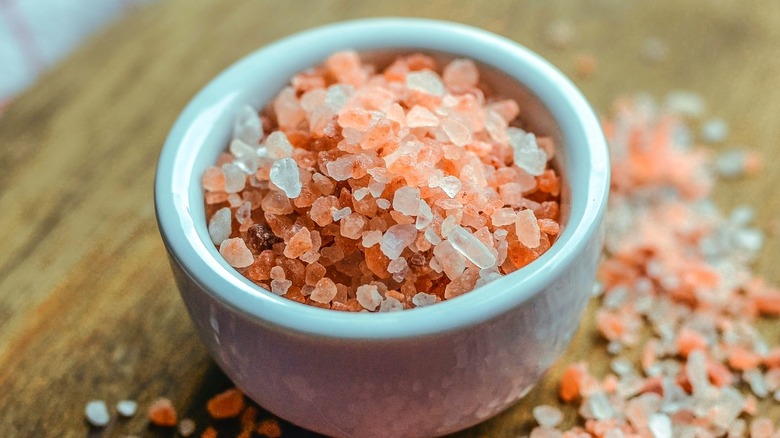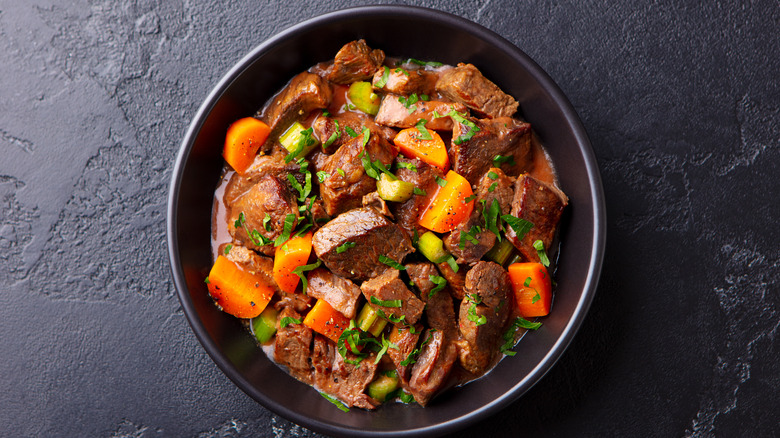Why You Should Almost Always Add Salt At The Start Of Cooking
Salt packs a lot of punch into tiny little sprinkles. This beloved food-enhancer amplifies a dish's salty notes, but can also make bitter foods taste much less bitter, per Fine Cooking. It also effectively makes food "tastier and more aromatic," both definitely good things!
But, when cooking dinner, do you salt your food at the beginning or when it's ready? You might be salting your food all wrong, according to an informal experiment by Cook's Illustrated. If it's robust flavor you want, get into the habit of adding salt before you start cooking, rather than seasoning once it hits the plate.
Cook's Illustrated decided to conduct an experiment to find out whether it was better to add salt before or after cooking, and the dish they chose was beef stew. In one batch, they added salt at the beginning of the cooking process, but in the other batch they held off salting the various ingredients until the very end. The resulting dishes turned out very differently, something that any home chef would certainly want to know.
How the two dishes differed
The test kitchen noted a major difference in the flavor of the roasted stew carrots that had been salted before cooking. These were "properly seasoned and flavorful throughout." The carrots salted at the end were "far too salty" and only seasoned on the outside. They noted the same results with the beef stew. "Furthermore, as with the carrots, the stew's gravy tasted far too salty when the salt was added at the end," Cook's Illustrated notes.
This is all because salt soaks into hot, cooking food better and more thoroughly than it does into cold food, the publication explains. This is even more true for vegetables, which are slower to absorb salt than meats. The site does note, however, that salting at the end of cooking is a good option for people who are trying to limit how much salt they consume. It might not be quite as flavorful, but the effect could be a lower sodium intake.

